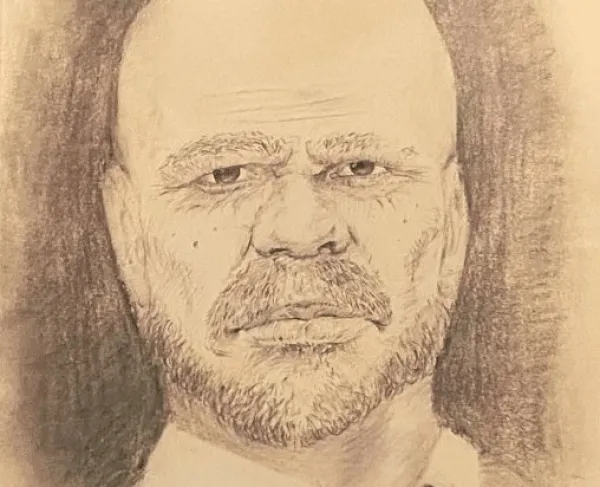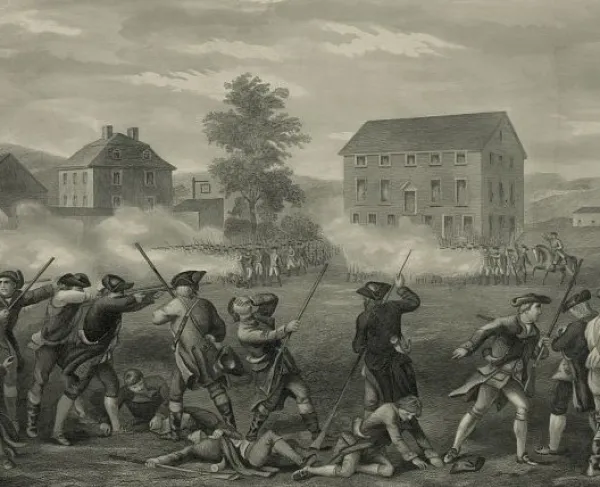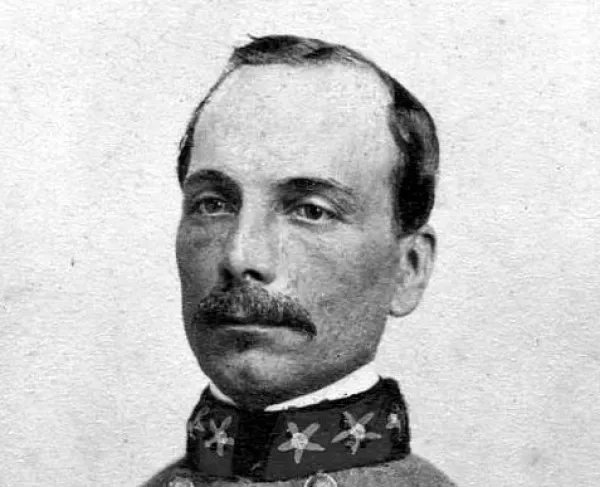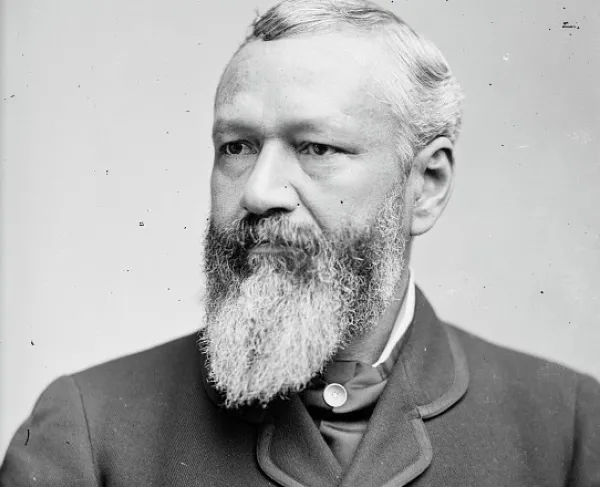Peter Crosby

(No known photographs of Peter Crosby are in existence; a local student created the illustration paired with this article in 2015 and it hangs in the Warren County Sheriff’s Office.)
Peter Crosby, the first Black sheriff in Warren County, Mississippi, was a Union veteran of the Civil War and a leader of the local African American community during the Reconstruction Era.
Born enslaved in 1844 to parents Peter and Sallie Crosby, young Peter grew up in Clarke County—an eastern, mid-state county in Mississippi. He learned the trade of a shoemaker and was permitted to earn wages for extra work. Eventually, he purchased mules and a carriage which allowed him to journey more than 150 miles west to Vicksburg in 1864, taking his wife, Martha, with him.
Vicksburg, the seat of Warren County and an important trading city, had been the last Confederate stronghold on the Mississippi River. A Union Army commanded by General Ulysses S. Grant sieged and captured Vicksburg in 1863, and it remained under Federal control. When Crosby and his wife arrived in the city, they self-emancipated and found a world of new opportunities.
Crosby enlisted in Company C of the 5th U.S. Colored Heavy Artillery on March 1, 1864. Enlisting allowed him to take a direct role in the fight for ending slavery in the United States and also gave him some financial security through the army pay. The 5th U.S. Colored Heavy Artillery performed garrison duty at Vicksburg, with a few military expeditions in the autumn of 1864. Crosby likely participated in the expeditions and mustered out in 1866.
Some documents give glimpses into Crosby’s personal life immediately after his military service. He filed a claim with the Southern Claims Commission for personal property that had been taken by the Union Army, but his claim was denied. With savings, he purchased a lot in Vicksburg and settled there. His widowed mother moved to Vicksburg, and she made deposits in the Freedman Bureau Bank. These documents suggest the challenges of personal finances, and an awareness of the assistance for newly freed families during the Reconstruction Era.
The Reconstruction refers to the post-Civil War years between 1865 and 1877 as southern states rebuilt and re-formed their state governments. The period was especially rocky in Mississippi as white southerners introduced Black Codes which imposed and codified in law many of the restrictions of slavery. Federal troops stationed in Mississippi, local Republican Party leaders, and Governor Adelbert Ames, tried to protect civil rights in a uphill struggle. Peter Crosby joined the Republican Party, and he held several different jobs or elected posts in the years after his military service: coroner, ranger and county treasurer. He made public speeches, advocating for civil rights and equality, and became known as a leader in Warren County’s Black community. About 70% of the county’s residents were African American, and their frustration grew at the lack of representation in elected county offices.
In November 1873, Crosby won the election for County Sheriff by a landslide. The Taxpayers’ League formed in response, and this all-white league spawned vigilante militias. Attacks against newly elected Black officials, including Crosby, started with accusations of embezzlement and went to the courts. At the circuit court, a grand jury refused to indict any of the accused officials. The Taxpayers’ League ordered Crosby and others to resign their elected posts. Crosby refused. For the next intimidation, two men entered his sheriff’s office and ordered Crosby to resign while an angry mob of hundreds gathered outside. Fearing he would be murdered, Crosby signed a forced letter of resignation.
Escaping Vicksburg, Crosby sought the advice of Republican Governor Ames who told him to make a stand. Crosby returned and published a proclamation, asking all citizens of Vicksburg to support him and stand against mob rule. On December 7, 1874, groups of white citizens gathered in town and opposed the arrival of Black citizens who came to rally for Crosby. Shots were fired, and the events known as the Vicksburg Massacre began—brutal attacks on the Black community resulting in the deaths of several hundred over the following days. According to some accounts, Crosby barely escaped lynching during the violence. The Vicksburg Massacre became a national headline, highlighting failures of the Reconstruction to suppress or end racism. A Congressional committee opened a hearing, and when it ended, Peter Crosby was ordered to return to his elected office as sheriff, though white locals insisted that J.P. Gilmer be added as a white deputy.
During spring 1875, Crosby caught Gilmer in criminal activities and fired him. In June, Crosby stood by the counter of a popular saloon across from Vicksburg’s courthouse when he was shot “under the left eye…the ball entering and ranged downward toward the back of the head, but did not come out,” according to a local paper. No one came forward to testify who shot the sheriff, though the saloon was crowded at the time of the attempted assassination; many suspected Gilmer. Crosby received medical attention and recovered at his home, then returned to duty and faced death threats until October 28, 1875, when he resigned again. Hopes for his family may have influenced his decision. Peter and Martha Crosby’s son, Charles, was born in 1876, and they had a daughter, Martha, two years later.
Crosby moved to Brunswick in Warren County and started farming. He was a member of benevolent societies organized by the African American community. He later returned to Vicksburg and again served as a coroner, then a Peace Officer and was elected Justice of the Peace in 1881. Peter Crosby died of tuberculosis on March 14, 1884. An obituary that honored his memory noted: “He was at one time Sheriff of this County, which position probably placed him politically at the head of his race in the county….”
From slavery to Civil War soldier to County Sheriff, Peter Crosby defied prejudice and tried to defend a better life and community for himself and his family. His election as sheriff and the Vicksburg Massacre brought civil rights violations during the Reconstruction Era to national attention.





